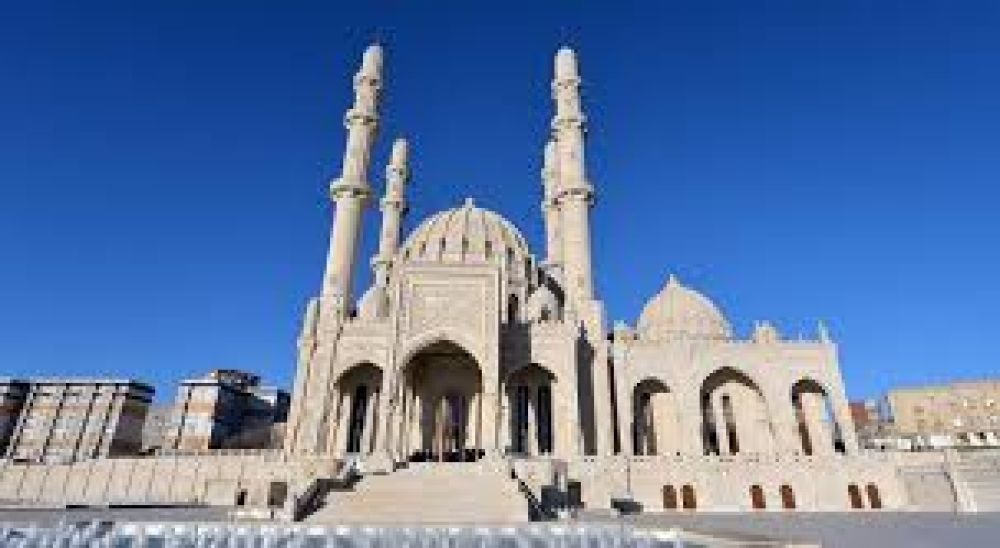

The Aliabad Mosque, located in the scenic city of Zaqatala in northern Azerbaijan, is a historical architectural monument that has drawn visitors from around the world. Zaqatala itself is nestled among lush forests and majestic Caucasus mountains, which makes it an appealing destination for both culture and nature enthusiasts.
Constructed in the 19th century, the Aliabad Mosque is a testament to the enduring Islamic architecture in the Caucasus region. It has stood as a spiritual center for the local community in Zaqatala for over a century, serving as a place of worship and gathering. Over the years, the mosque has attracted attention for its unique blend of Azerbaijani and Caucasian architectural styles.
During the Soviet era, religious expression was suppressed across the USSR, and the Aliabad Mosque, like many other places of worship, faced times of neglect. However, following the dissolution of the Soviet Union and the independence of Azerbaijan in 1991, there was a resurgence in national culture and religious freedom. This shift played a significant role in reviving the mosque as a cultural and religious landmark.
In recent years, the history and culture of Zaqatala, including the Aliabad Mosque, have been increasingly recognized as significant tourist attractions. Efforts have been made to preserve and restore the mosque while promoting sustainable tourism in the region.
International tourists have been gradually discovering Zaqatala's unique charm, drawn by its blend of Azerbaijani, Georgian, and Russian cultures. The Aliabad Mosque has benefitted from this interest, becoming an integral stop for visitors interested in the religious heritage and architecture of Azerbaijan.
One of the latest trends in tourism in Azerbaijan, including the Zaqatala region, is the focus on authentic experiences. Travellers are looking for meaningful interactions with local cultures and histories. Consequently, sites like the Aliabad Mosque are gaining popularity, as they offer a glimpse into the spiritual and community life of the region's past and present.
Sustainable and responsible tourism practices are increasingly being emphasized, with a focus on preserving the cultural and natural heritage for future generations. Tourism development plans often include community involvement to ensure that the economic benefits of tourism also support local infrastructure and livelihoods.
Eco-tourism is another growing trend in the area, with Zaqatala's natural beauty and biological diversity attracting those keen on nature walks, bird watching, and ecological exploration. The proximity of the Aliabad Mosque to these natural wonders complements the experience for those interested in ethno-religious tourism as well.
The Aliabad Mosque in Zaqatala is not just an architectural marvel, but a portal into the rich religious and cultural tapestry of Azerbaijan. Visitors to the mosque can expect an enriching experience that connects them to the history and spirituality of Zaqatala. As tourism in Azerbaijan continues to grow and evolve, the Aliabad Mosque will no doubt remain a cherished destination for those seeking to immerse themselves in the authentic storytelling of this fascinating region.